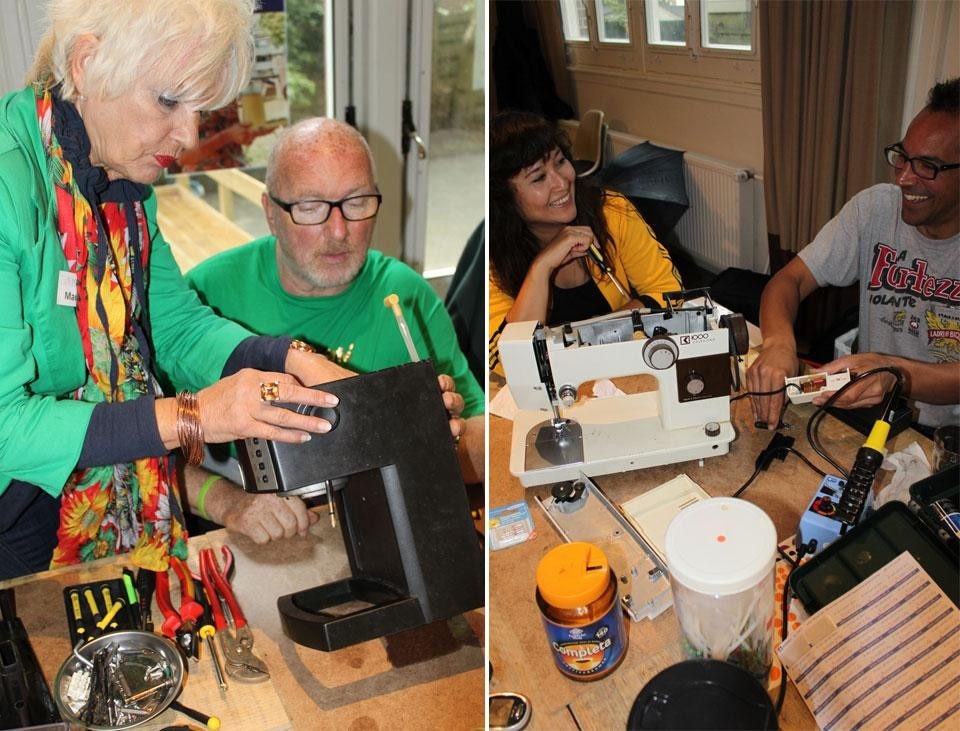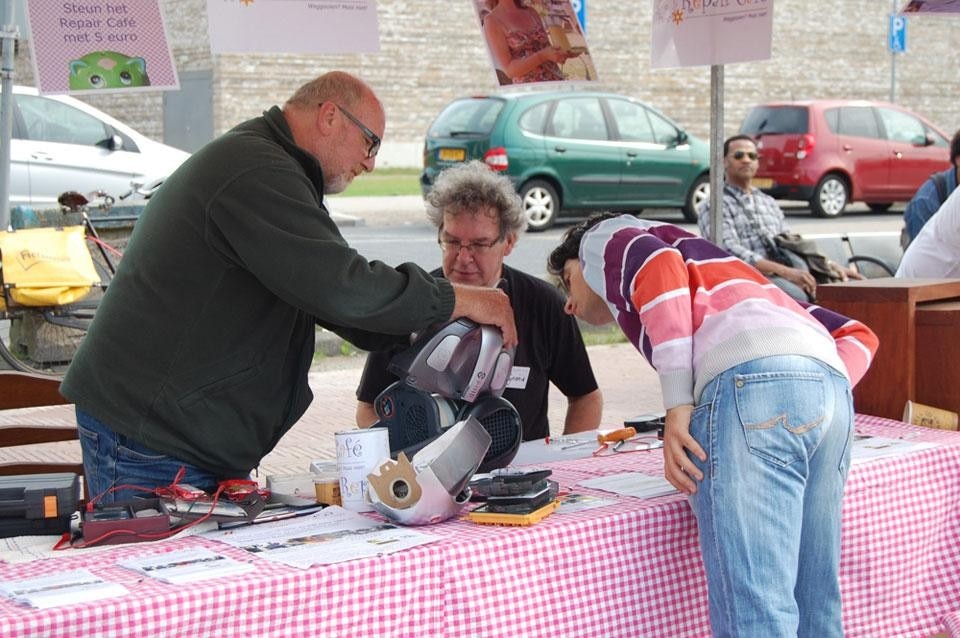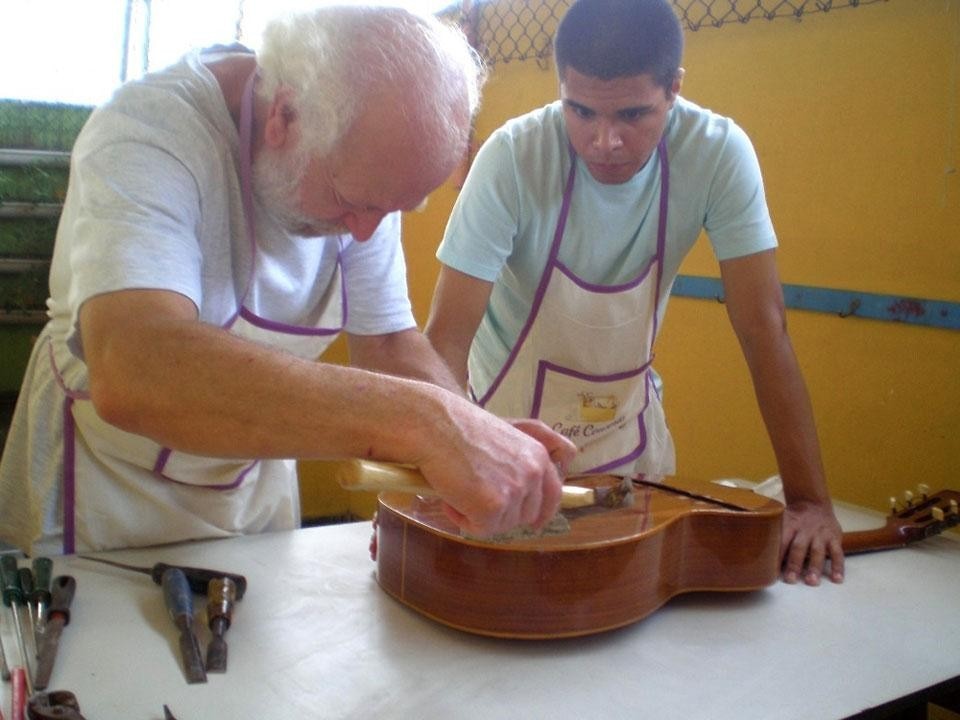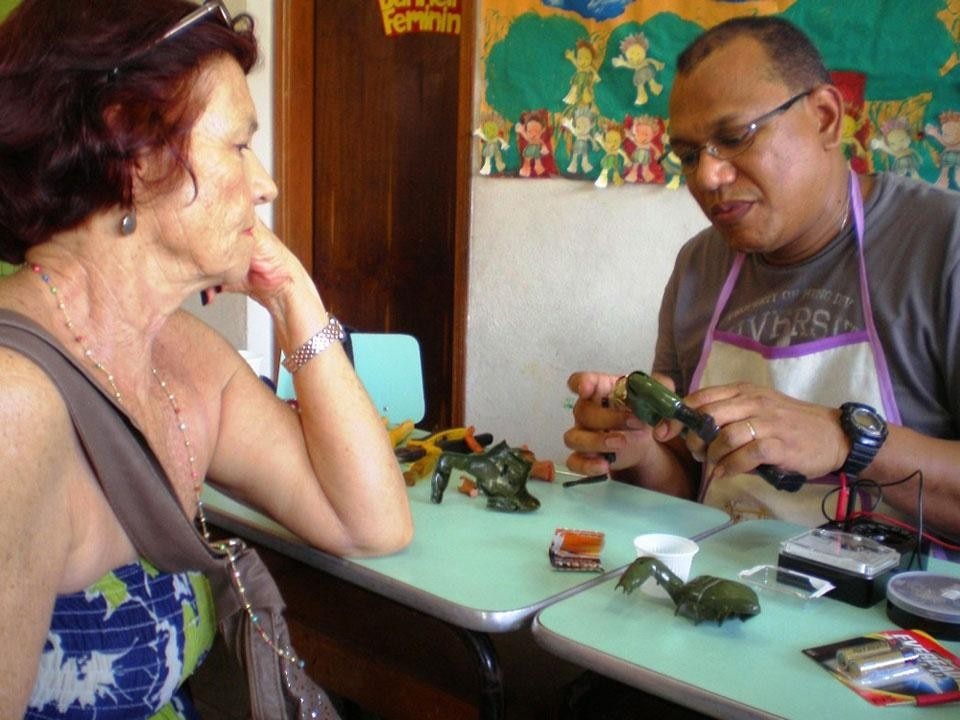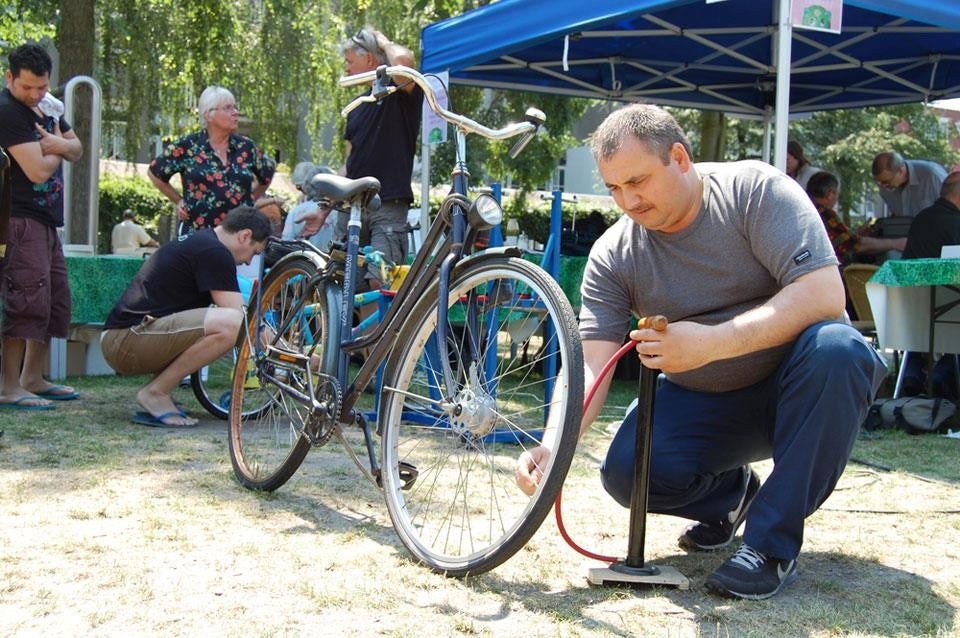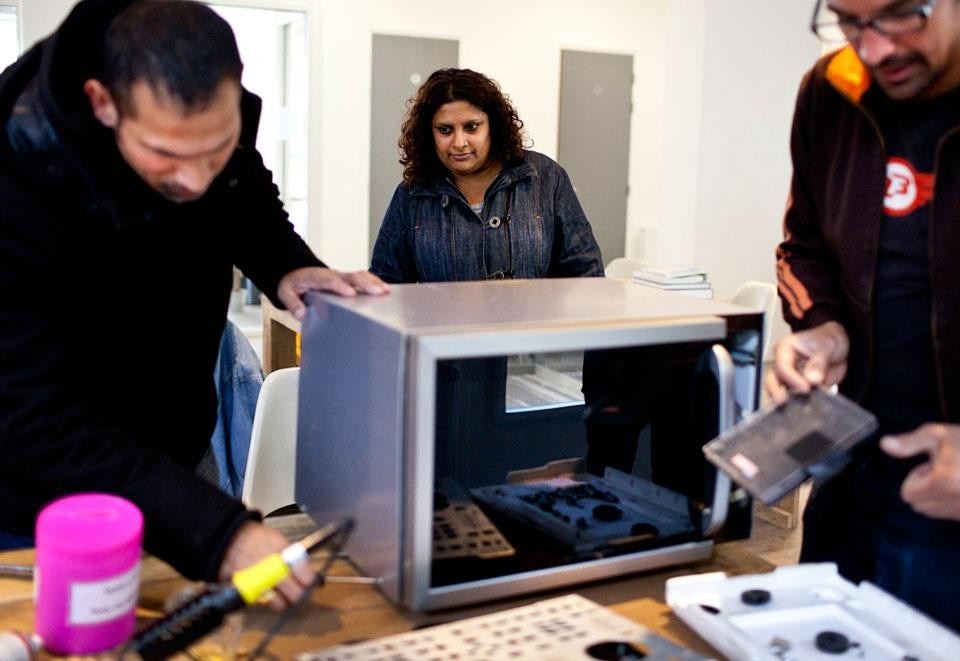The new fixers movement doesn't oppose consumerism in itself, but how it got connected with a throwaway mentality. For them, repairing is a way to raise awareness on how we consume things today, particularly on how a planned obsolescence determines that most of the products sent to the market today are designed to only last a certain amount of years. To repair is also to empower people with the tools and skills to fix their own possessions, to avoid getting caught in this vicious cycle.
A strong presence in the flourishing fixers movement is the Repair Café Foundation, a Dutch non-profit organization that provides free repair meeting places throughout the Netherlands. The story of the Repair Cafés starts with the 2008 Repair Manifesto by Platform21, a design collective based in Amsterdam (now extinct). "The team's love for imperfection, of which repaired objects were part of, is what made us write the manifesto," recalls Platform21's Joanna van der Zanden. With the motto Stop recycling, start repairing, the manifesto opposed the green movements that completely disregarded the notion of repairing. There was an immediate wave of supporters, and in the following months Platform21 organized an exhibition, lectures and workshops, all related to the theme of repairing.
Martine Postma, the founder of the Repair Café Foundation, stumbled upon one of this events and it struck her that repairing should be brought up again. "We used to repair. Why aren't we doing it anymore?" she recalls. From there, the former journalist started to make contacts, and the first fixers meeting happened in 2010. The Repair Café Foundation was later started with financial help from the Dutch Government and other institutions. The foundation offers a guide for people interested in starting their own repair meetings, with basic guidelines and some counseling if necessary. Since it began, almost 40 different locations spread over many cities in the Netherlands are hosting repair meetings.
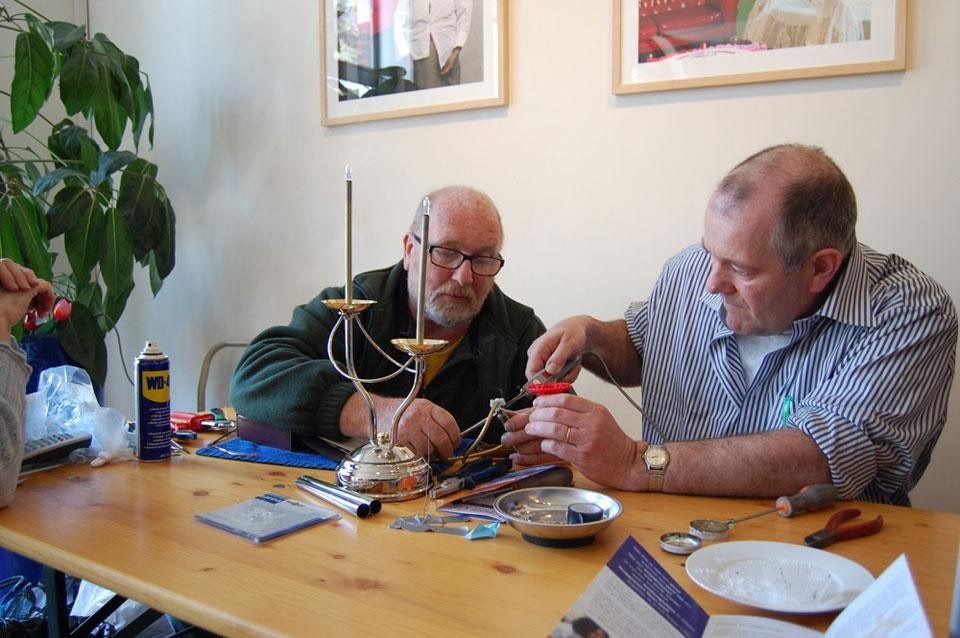
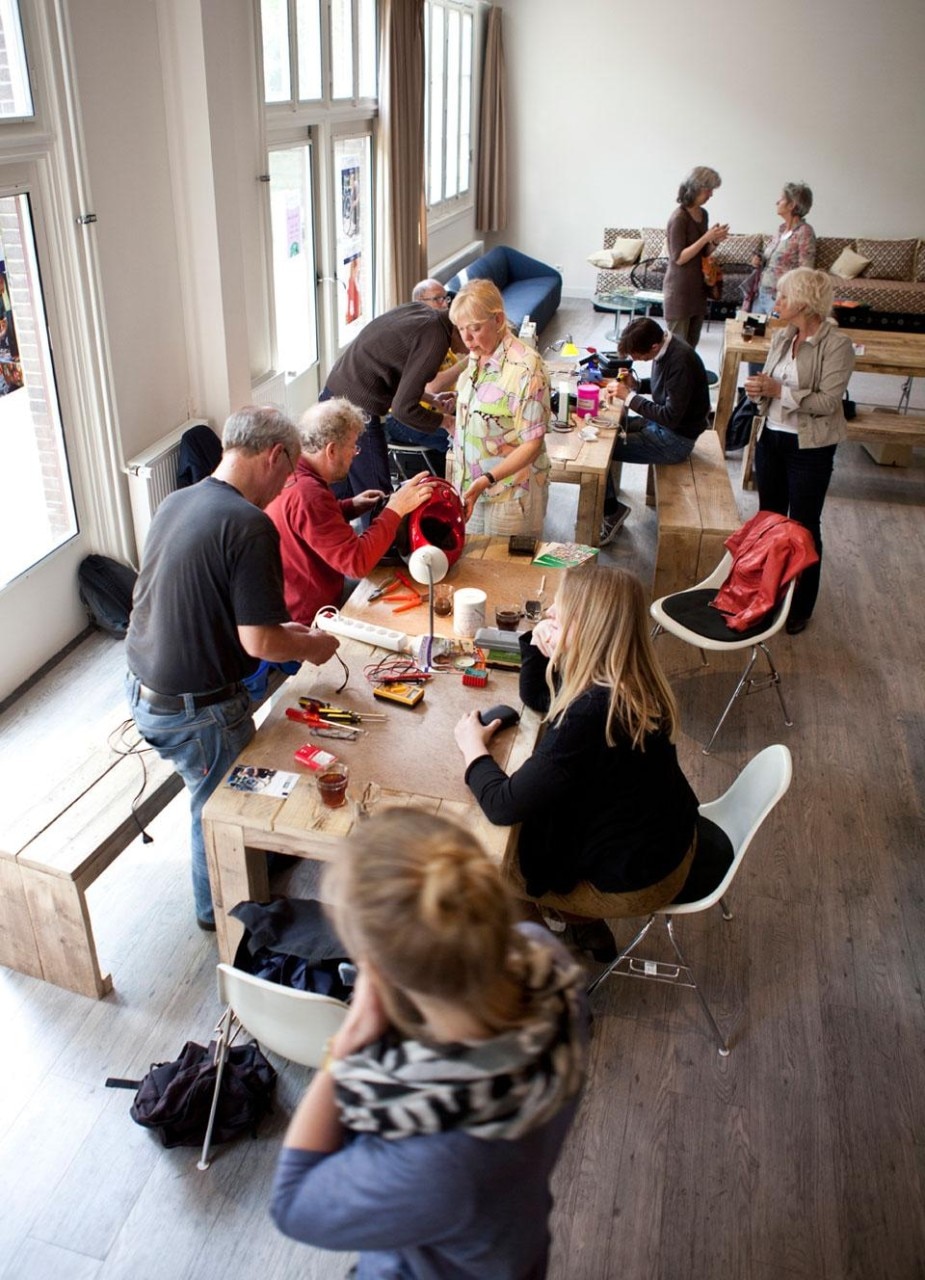
One of these cases is the repair meetings that just began to take place in the city of Santos, Brazil. "From what we know, we are the first in Brazil and in the whole of South America", says Tássia Tostes from Andes, the non-profit association that is holding the first café conserto reunions. More than fifty people attended the last one. "It's the happiness of having something fixed with no added cost, and also enjoying a nice afternoon, while meeting people and working together. These are economical, social and environmental concerns," Tostes adds.
The fixers movement shows no sign of slowing down and continues gathering supporters who want to change the way they relate to objects. By repairing an object, you enhance your relationship and add something to it, creating a story between you and the object. It's also a learning process, and a way to gain a little control over technology, just by having the power to fix something yourself
